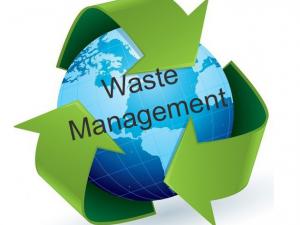GOOD PRACTICE Observatory of Public Policy on Waste Management (Colombia)
Discussion details

Creating an Observatory of Public Policy on Waste Management aimed at establishing a joint discussion space for community representatives, public authorities, private businesses, universities, recyclers and the project
In Colombia, the creation of an Observatory of Public Policy on Waste Management was aimed at establishing a joint discussion space for community representatives, public authorities, private businesses, universities, recyclers and the project. The Observatory contributed to spreading knowledge on the life conditions of workers. It also organised events that created links with the inhabitants that could have a direct effect on the quality of work. Issues discussed included limiting harassment and improving the sorting of waste, limiting the presence of hazardous waste.
The Observatory provided the place where the project and the association leaders of the recyclers elaborated a proposal for the implementation of Environmental Management Plans on Solid Waste. They managed to ensure that, in 2012, the Constitutional Court recognised the waste pickers and recyclers workers as entrepreneurs who make a contribution to the value chain. This decision paved the way towards their integration in the municipal waste management scheme and progressive registration thus qualifying the associations to access procurement contracts. Such a successful process and struggle of waste pickers for recognition can, however jeopardize if individuals elected in municipal elections do not support the process. As a result, the challenges are still topical today.

Official recognition and registration may reveal more challenges in other countries. In Vietnam for example, the project’s advocacy work with several levels of relevant authorities and government achieved tolerance for the use of three-wheel vehicles at certain times of the day. This significantly reduced the risk of abuse. Likewise, tolerance of the junk shops run by cooperatives to buy and sell od recyclable waste inside the city centres also reduces abuse. Until the end of the project, however, these decisions were not formalized into municipal by-laws because of the complexity of bureaucratic decisions and advocacy is still continuing.
In their background paper for the HDR 2015, Martha Chen, Chris Bonner and Françoise Carré (2015) bear witness of this continuing and never-ending process of advocacy for the most vulnerable informal workers in order they keep and somewhat improve the modest place that is tolerated for them on the labour market.
Source: ENDA “Towards social protection and inclusion of informal waste pickers and recyclers (IWPRs) in the South” Colombia, Ethiopia, Madagascar, Vietnam (Project Final Report)
Click here for more information on the good practice.
_______________________________________________________________________________________
Identification of Innovative Approaches to Livelihood Enhancement, Equity and Inclusion of People Dependent on the Informal Economy
Volume 1: Good Practices and Lessons Learned
Extracted from 33 Projects Selected Under the 2009 EC call for Proposals:
“Investing in People. Promoting social cohesion, employment and decent work. Support for social inclusion and social protection of workers in the informal economy and of vulnerable groups at community level”
March 2016
By Jacques Charmes, Mei Zegers
Log in with your EU Login account to post or comment on the platform.